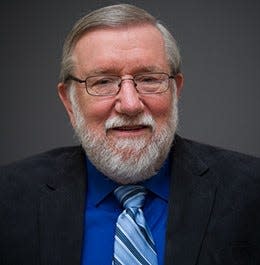Here’s how FSU, FAMU and TCC faculty should counter legislation threatening unions
Last week the Florida House and Senate both advanced legislation that would require annual proof of 60% membership for university faculty unions to retain bargaining rights. Note that the standard requirement to establish a union in the U.S. is 50% of those voting, while this is 60% of all faculty. Also note that the re-election of DeSantis in 2022, widely described as a landslide victory, was accomplished with less than 60% of those voting and less than 35% of registered voters.
This legislation thus requires annual super-majorities for faculty unions to retain the right to speak for faculty, going well beyond the simple majorities required for election to public office. The requirement is particularly noteworthy in the context of other efforts by the DeSantis administration to limit free speech and academic freedom, to eliminate university diversity equity and inclusion programs, and to attack tenure protections.
Although cloaked in the rhetoric of anti ‘wokeness,’ the reality is very clear – this is a return to the McCarthy era efforts to silence any discussion of progressive policies or any recognition of the negative side effects of pure individualism and the unfettered free market.
The reality is that free speech is neither left wing nor right wing; rather the first amendment protects all Americans against government limits on our freedom of expression. As noted recently in the British publication the Economist (clearly a mainstream pro free market publication) in an article on U.S. Republican efforts to silence critics in higher education, “Colleges that promote ideological conformity do students a disservice.” Similarly, the moderate, mainstream economics think tank the Brookings Institution recently posted an editorial titled “Why academic freedom challenges are dangerous for democracy.”
Florida’s university faculty may not be able to block this dangerous shift to extremist policies that threaten free speech and our democratic society, but even within the context of the unreasonable requirement to prove 60% support annually faculty can send a clear message of strong support for free speech and academic freedom.
This is not time for silence or sitting back to watch what unfolds, the faculty at our institutions of higher education should step forward and join with their colleagues, individually taking the initiative to join the faculty unions on their campuses. The best defense against the threatened encroachment on free speech and academic freedom is the strong independent voice provided by faculty unions that can boast super majorities.

Richard Hurd (FSU 1968) is a labor economist and Cornell University Professor Emeritus. He annually delivers guest lectures in FSU's Department of Management.
JOIN THE CONVERSATION
Send letters to the editor (up to 200 words) or Your Turn columns (about 500 words) to letters@tallahassee.com. Please include your address for verification purposes only, and if you send a Your Turn, also include a photo and 1-2 line bio of yourself. You can also submit anonymous Zing!s at Tallahassee.com/Zing.Submissions are published on a space-available basis. All submissions may be edited for content, clarity and length, and may also be published by any part of the USA TODAY NETWORK.
This article originally appeared on Tallahassee Democrat: Here’s how FSU, FAMU and TCC faculty should counter legislation threatening unions
